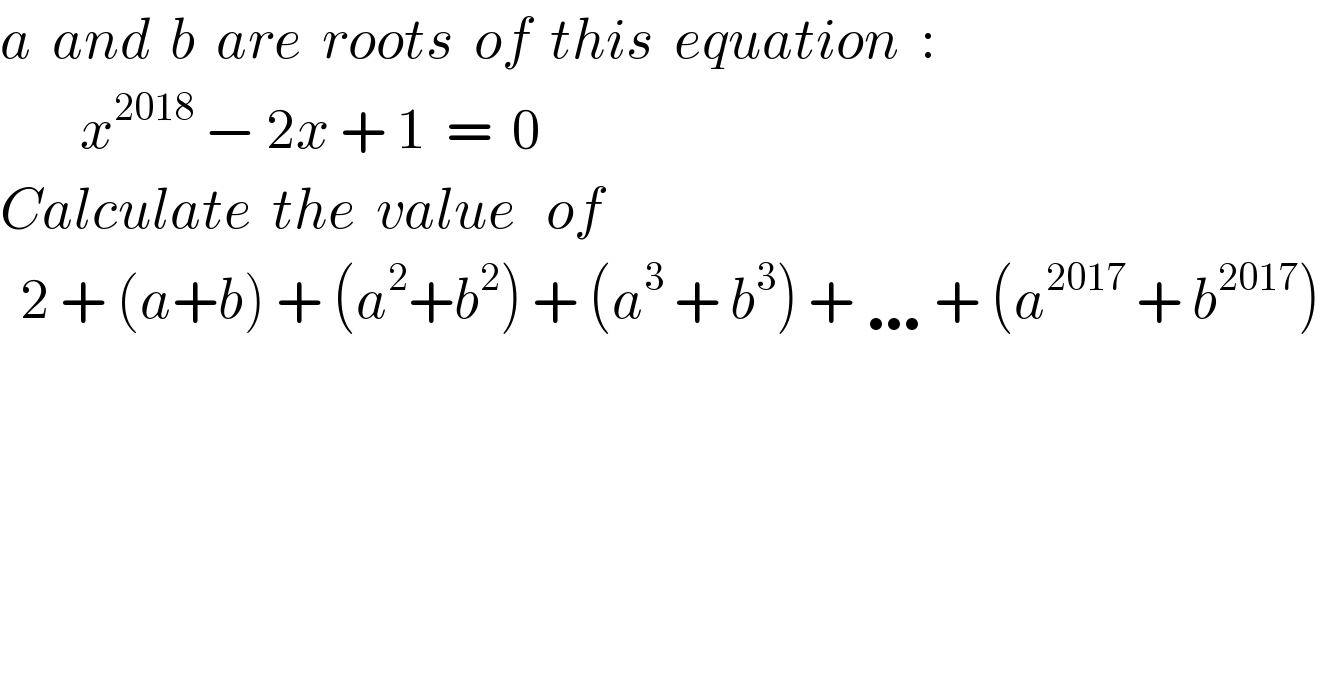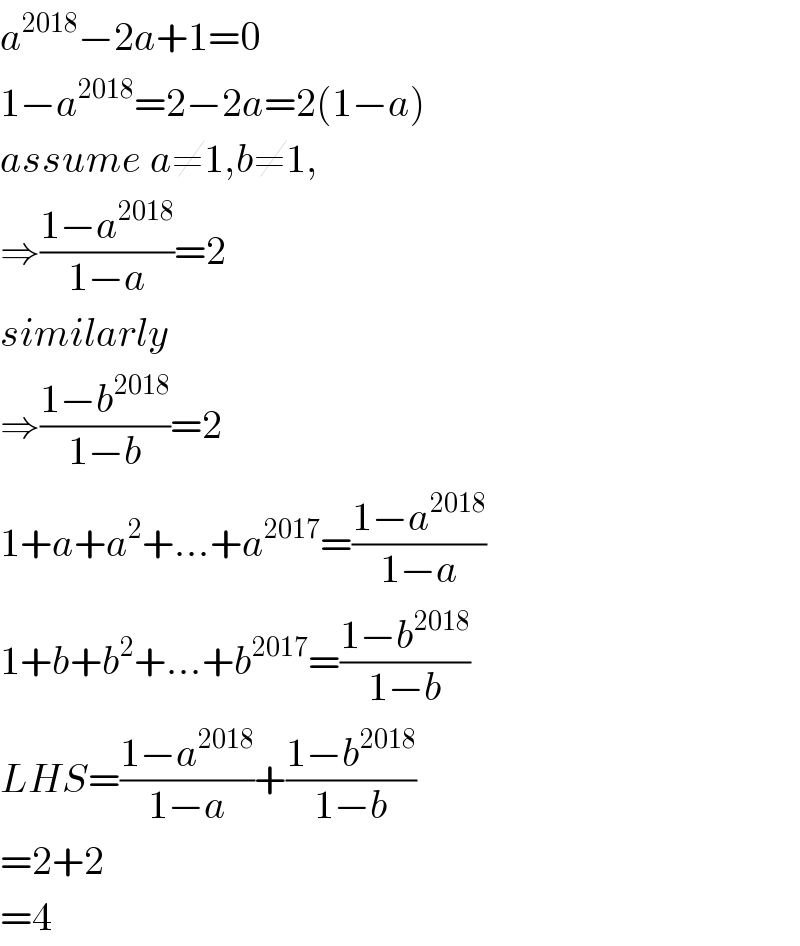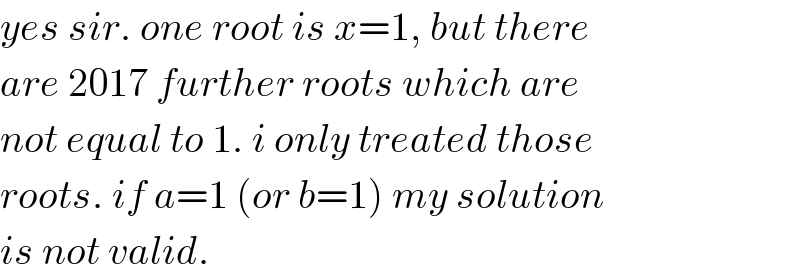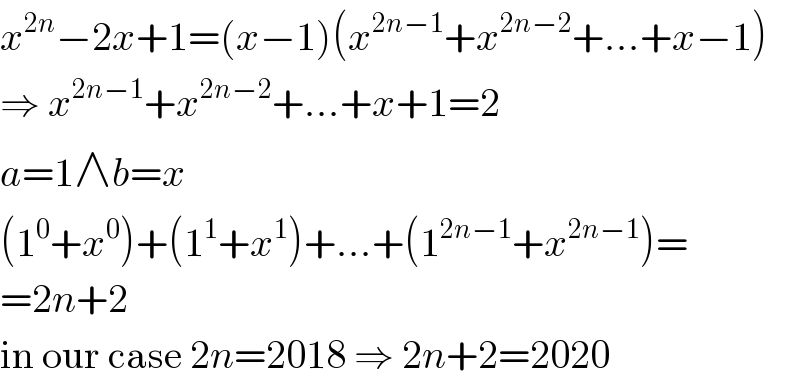
Question and Answers Forum
Question Number 58501 by naka3546 last updated on 24/Apr/19

Answered by mr W last updated on 24/Apr/19

Commented by MJS last updated on 24/Apr/19

Commented by mr W last updated on 24/Apr/19

Answered by MJS last updated on 24/Apr/19

